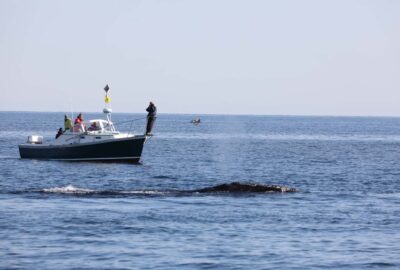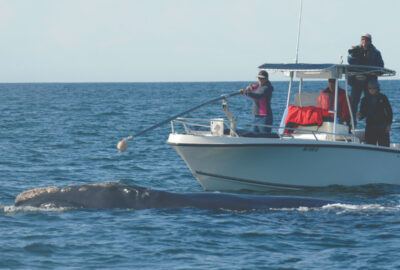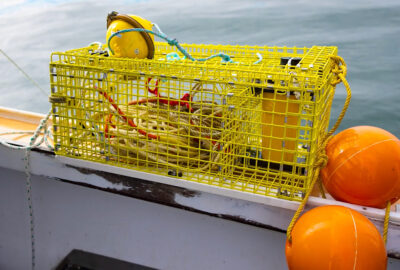Bay of Fundy Survey Season Gets Underway: 40 Years and Counting!
By New England Aquarium on Friday, August 07, 2020

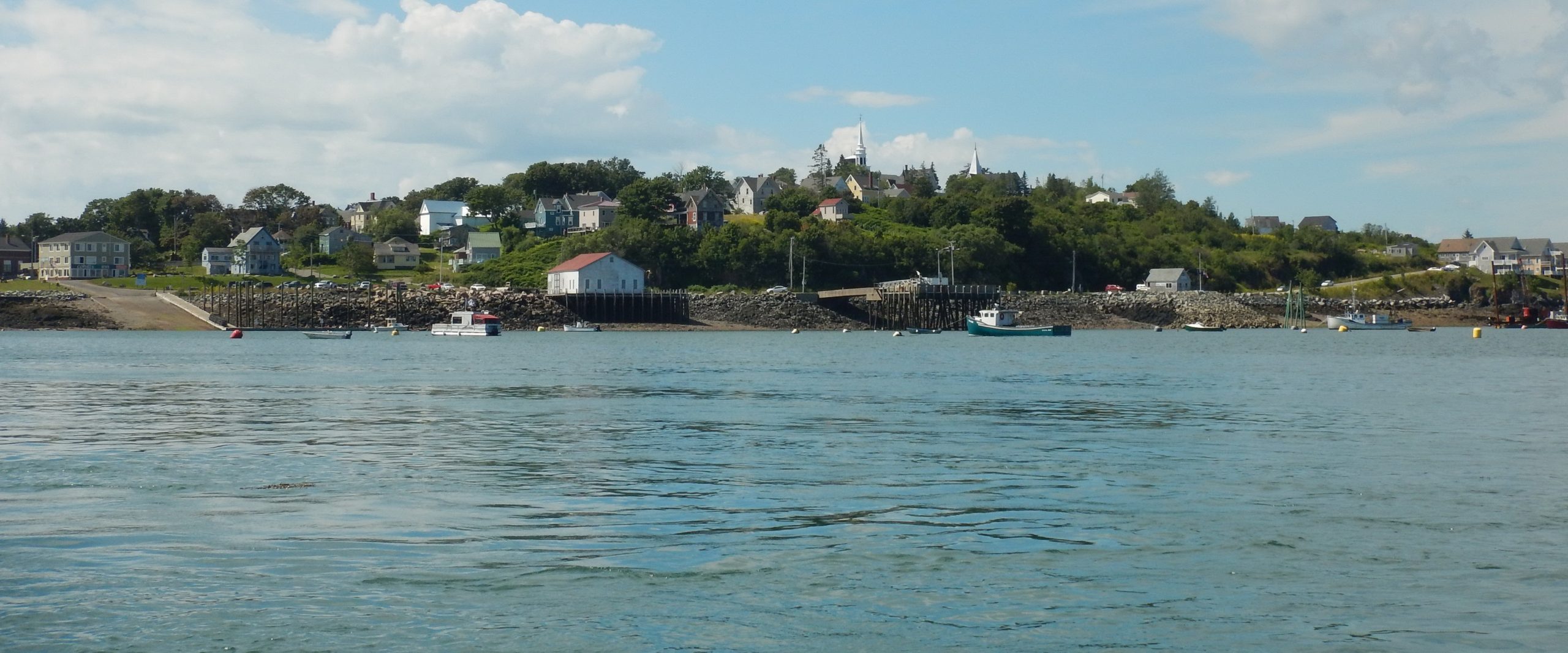
By
Right whale researchers with the Kraus Marine Mammal Conservation Program at ACCOL/New England Aquarium have studied how North Atlantic right whales utilize the Bay of Fundy habitat with shipboard surveys since 1981 (our first aerial survey of the area was done in 1980)! Over the years, our team has participated in expeditions to other habitats of interest, such as Roseway Basin, south of Nova Scotia. In 2015, we responded to a shift in habitat usage and voyaged into the Gulf of St. Lawrence (GSL), sending a small team to survey the Baie des Chaleurs, where a few right whales were spotted over the years. The team photographed two right whales and sadly the carcasses of three others (including an old friend, “Piper”) were found in the region—and while not the scenario we hoped for—it indicated the habitat was worthy of future dedicated efforts.
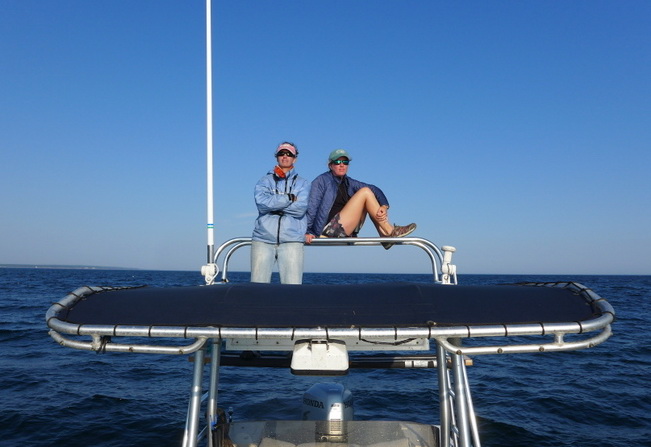
In 2016, in addition to sending another small survey team to the western coast of Cape Breton in GSL, we helped initiate a collaborative scientific effort with Dalhousie University and the Canadian Whale Institute (joined by researchers from the University of New Brunswick, Saint John in 2019) to conduct offshore scientific cruises in what would turn out to be the heart of right whale habitat in GSL. Our team proudly led the right whale research on these voyages (eight in total)—the only right whale focused shipboard surveys in GSL—by collecting photographic data, behavioral data, and biological samples, and assisting with whale disentanglement. Our collaborators focused on plankton data collection to help further the understanding of the food resource in this emergent habitat, as well as acoustic recordings.
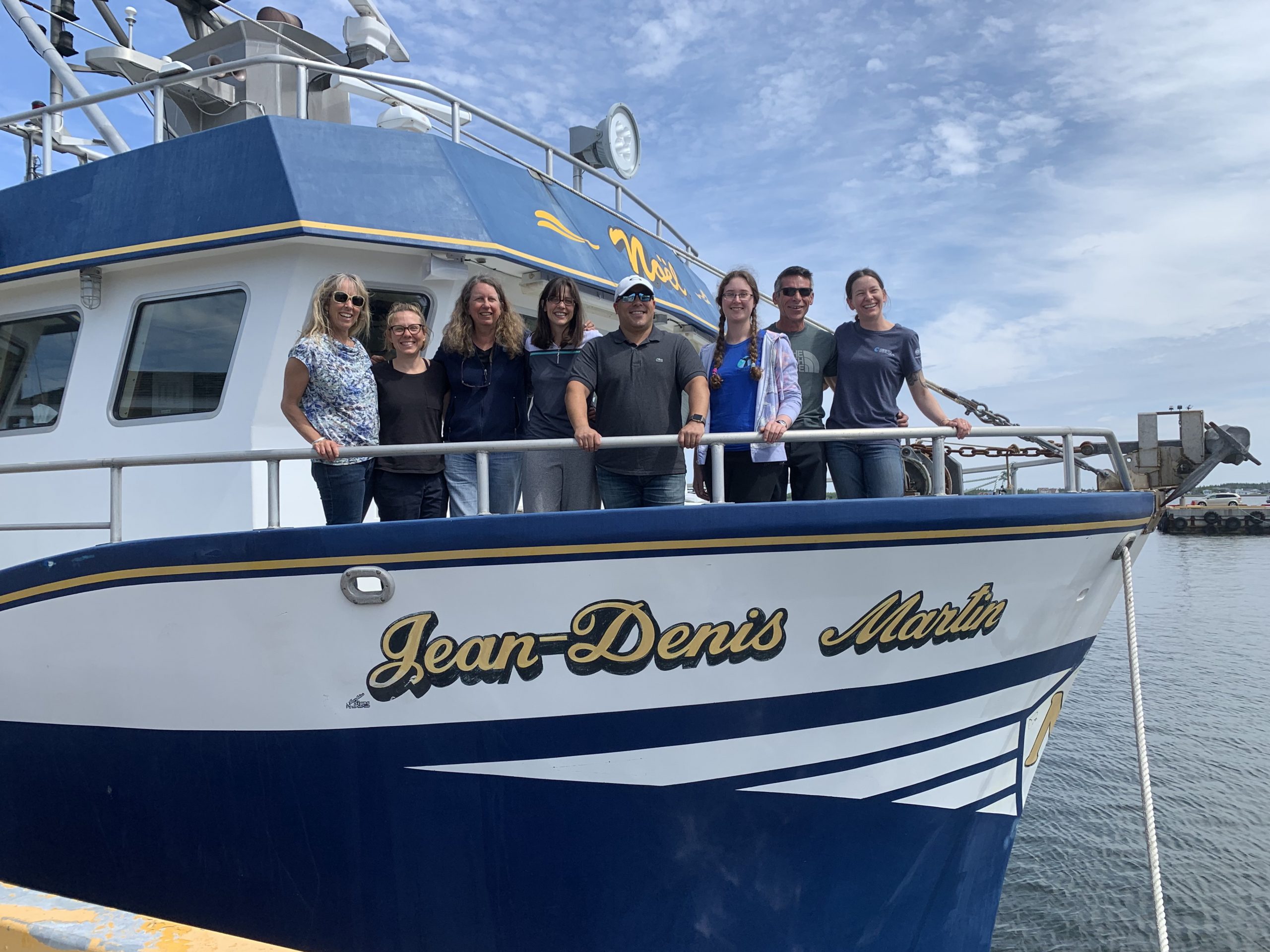
This year, due to COVID-19 and resulting logistical challenges, our team decided to cancel its participation in what would have been our sixth consecutive year of GSL surveys. While we’ll miss assisting in the collection of this invaluable data, spending port calls on the beautiful Acadian Peninsula in New Brunswick, and practicing French with our beloved francophone crew, we are very pleased their work will continue this summer, including aerial surveys by the Canadian government, further collection of acoustic recordings, and some vessel-based data collection. Our team will continue to support their work by prioritizing the identification of the right whales these aerial and vessel teams document and we’ll remain on standby for real-time verification of any dead or entangled animals. Check out all of the survey effort and right whale sightings (including ours) in Canadian waters on WhaleMap!
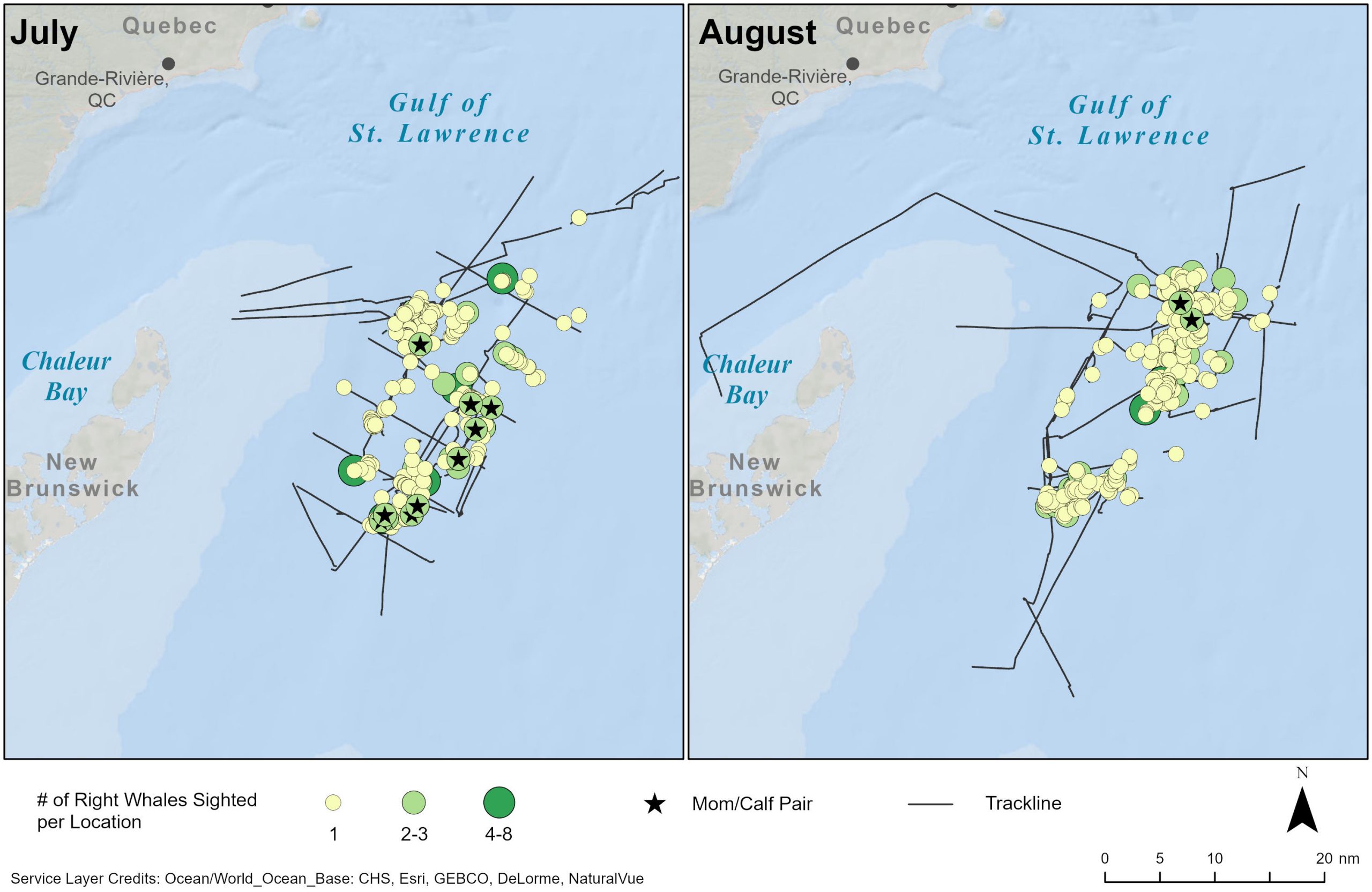
Bay of Fundy Field Work Commences
With the cancellation of our GSL cruises, our team was able to focus on making plans for our annual Bay of Fundy (BOF) surveys. After some nail biting over approvals and permits, we are thrilled to announce that we are now in Lubec, Maine for our 40th consecutive field season of shipboard surveys!
And what a year it is! As you would imagine, keeping our five to seven field researchers healthy and safe from COVID-19 is our top priority. We’ve implemented several new safety protocols, including requiring the team to get tested for COVID-19 prior to arrival in Lubec. Additional precautions include daily temperature checks, minimizing crew turnover, and reducing interactions with the public. Still, some things remain stubbornly unchanged—like not having a completed dock (throwback to 2015!) and so needing to rely on a rowboat to get to our survey vessel, the Nereid’s, mooring (throwback to the 80’s!).
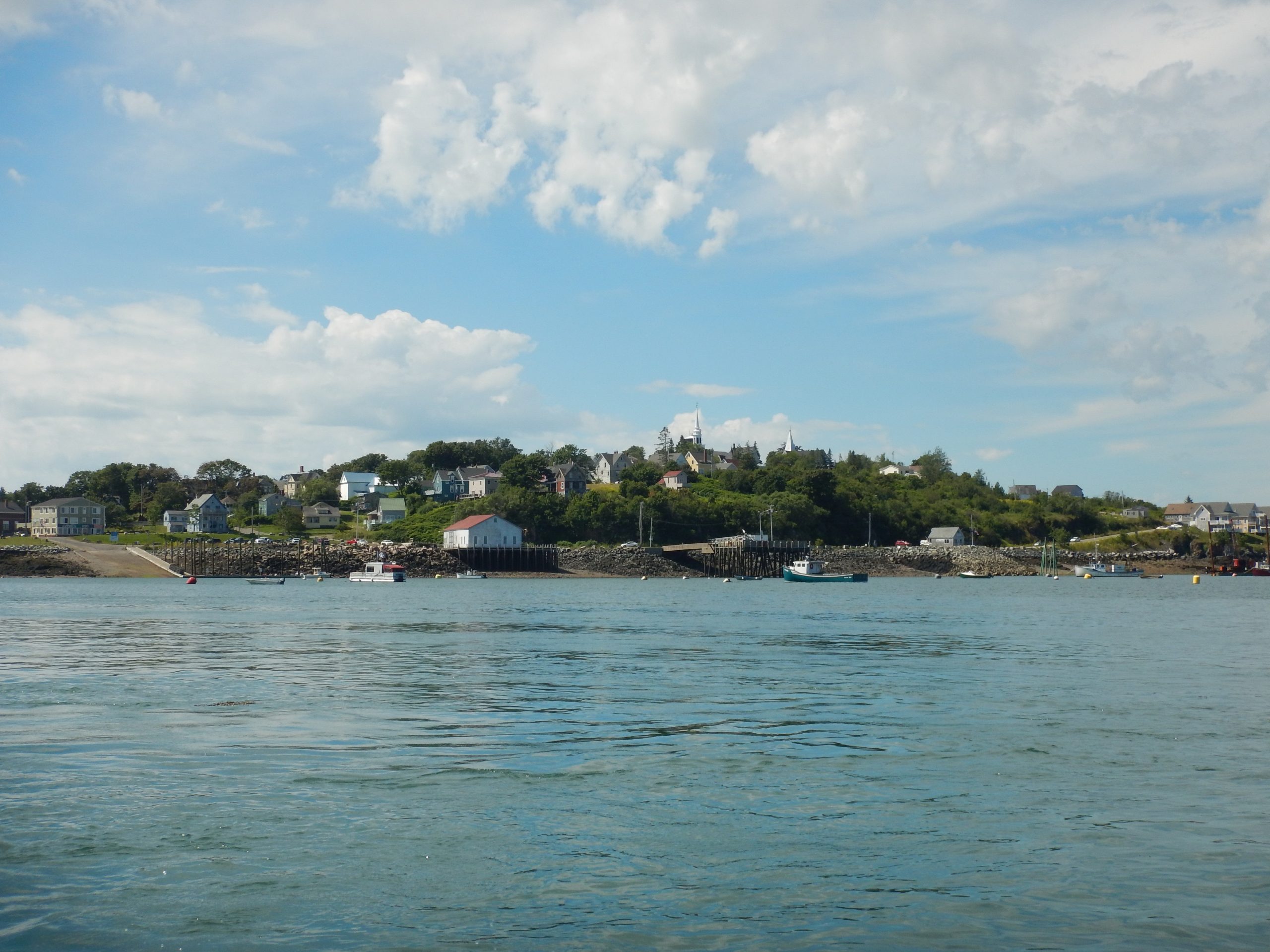
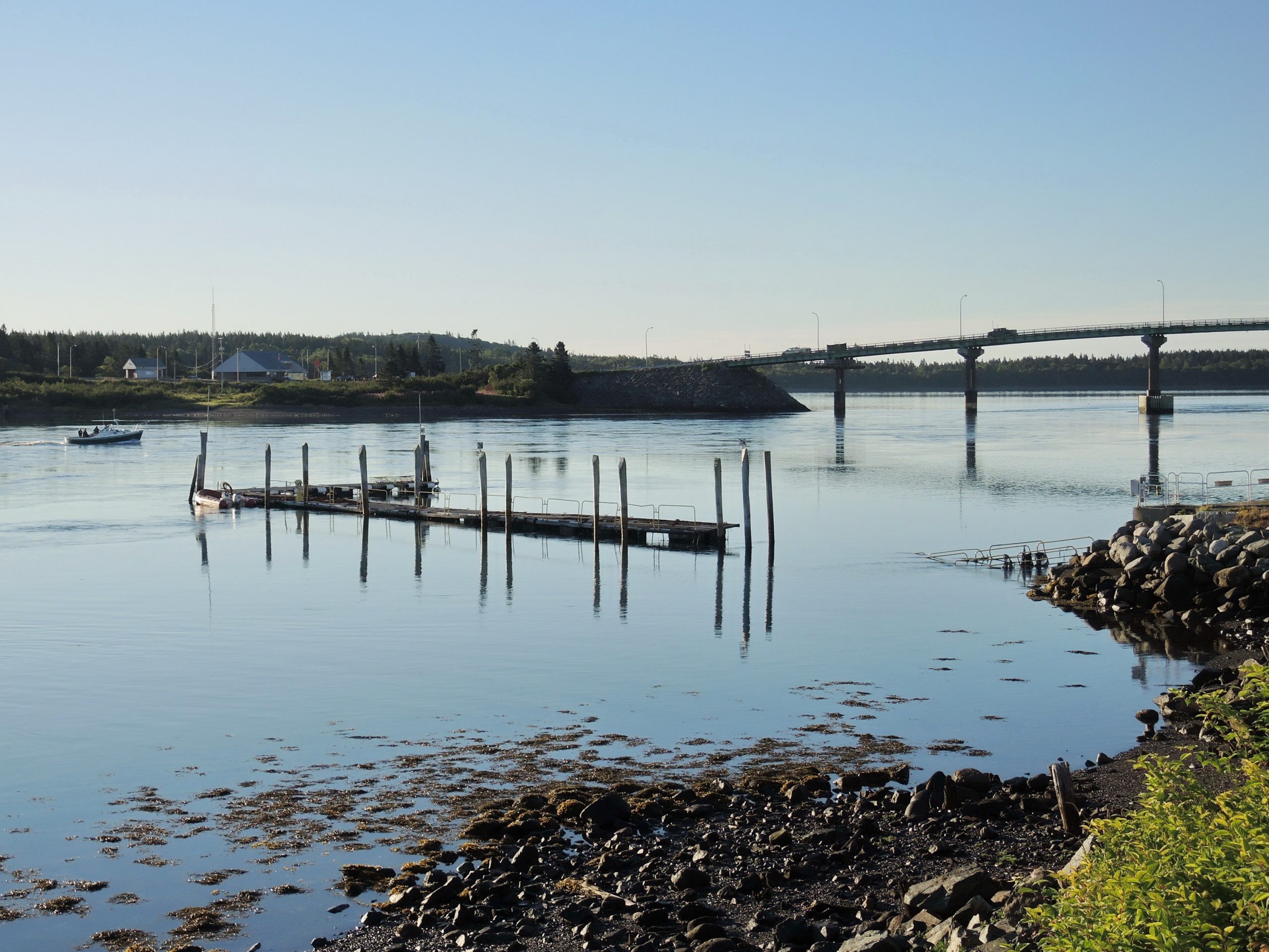
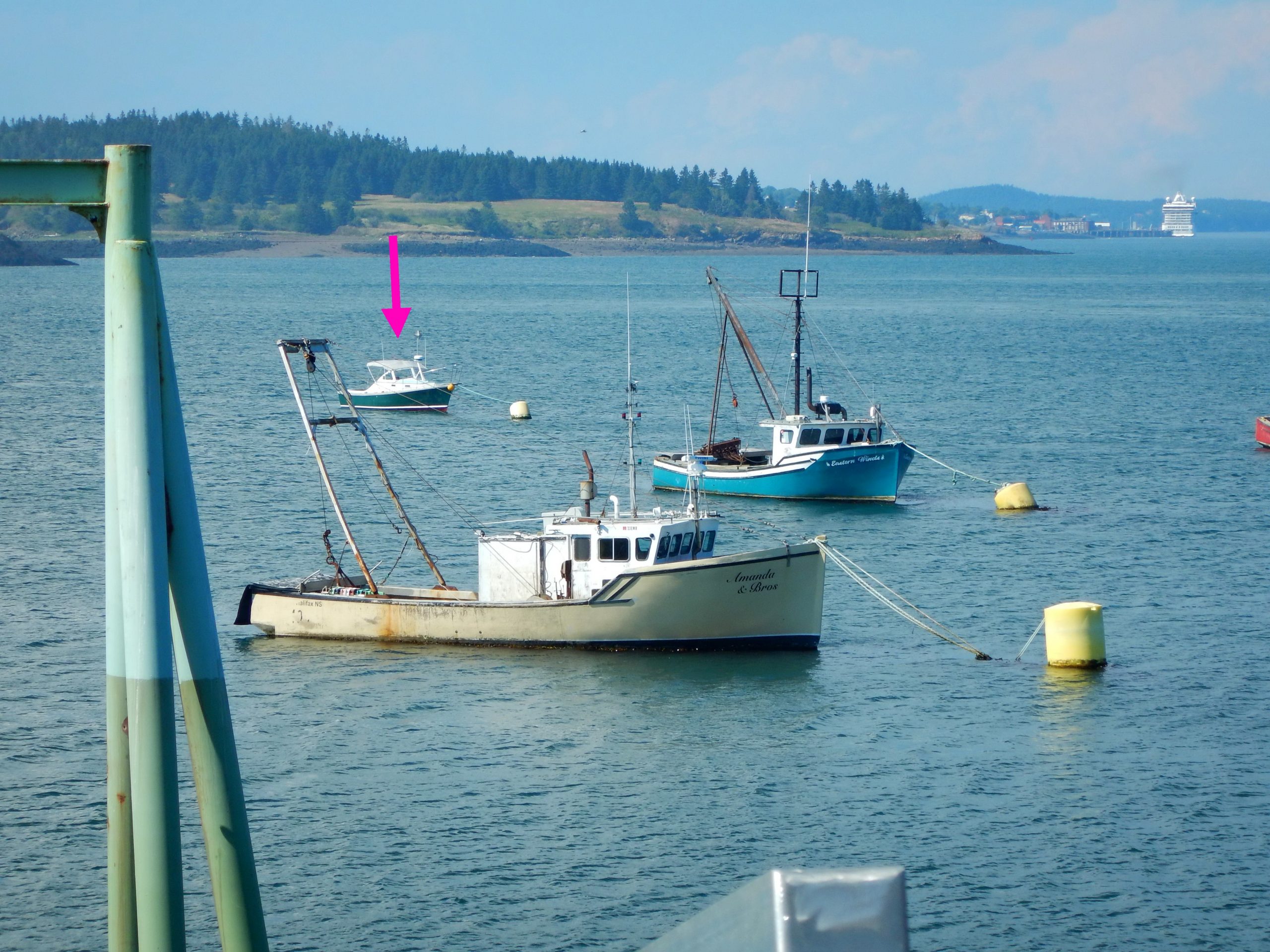
Nonetheless, we are looking forward to once again being immersed in long days of challenging field work over the course of several weeks—working, eating, playing together—in this already isolated but beautiful town of Lubec. And we are more than ready to study some right whales!
We’re extremely grateful to Irving Oil for partnering with us on this critical research since 1998! We are also grateful to Irving Oil and the Island Foundation for allowing us to operate during these financially challenging times. This work would not be possible without their generosity!

